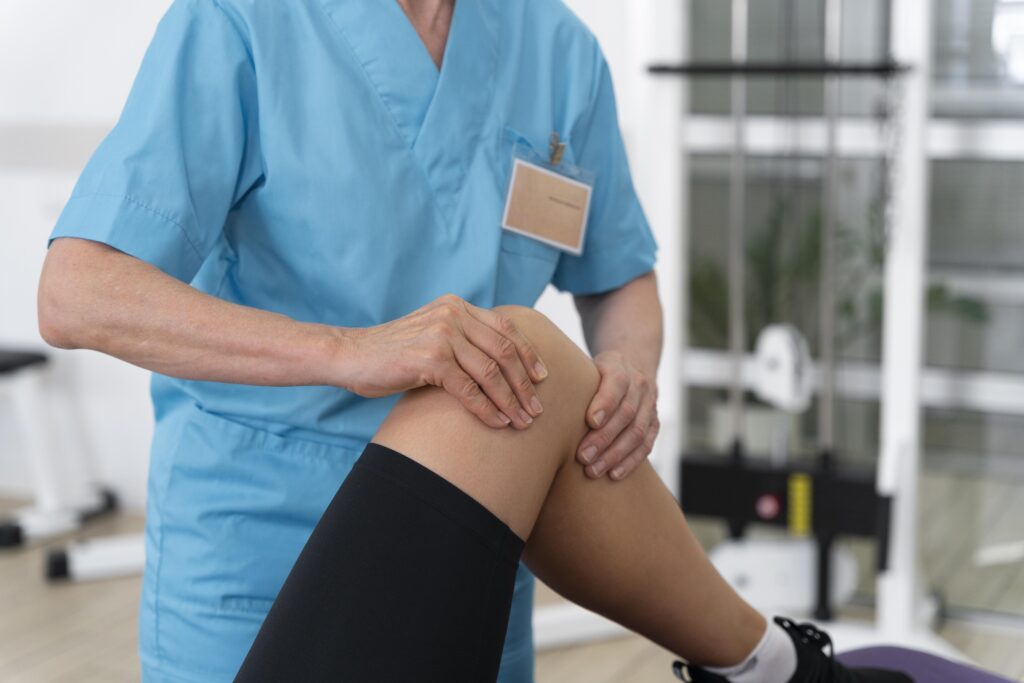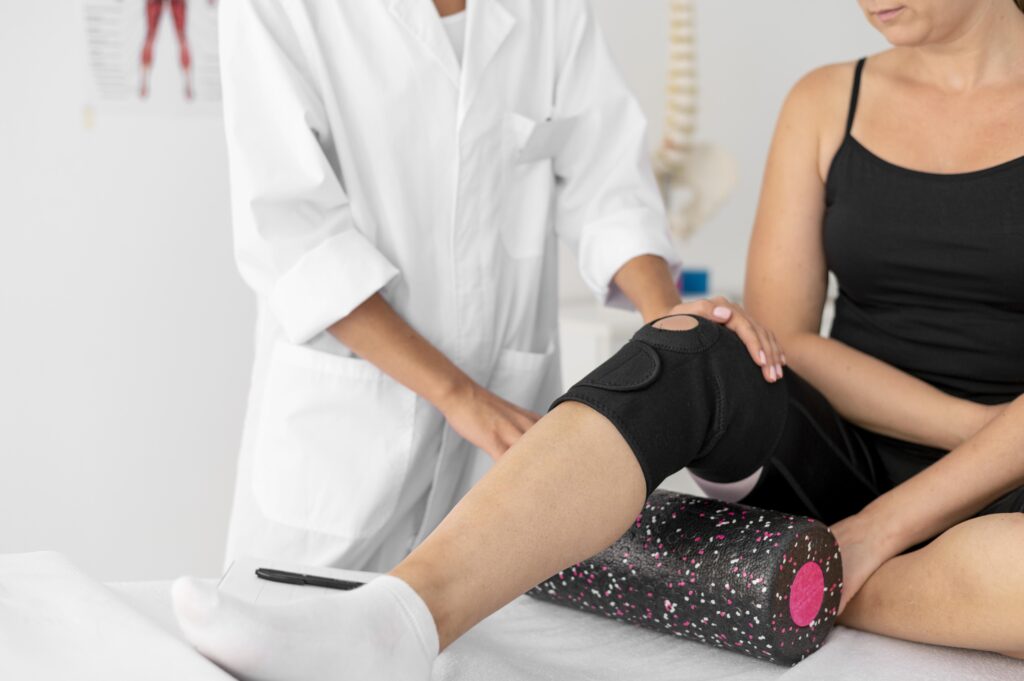Revision Joint Replacement

Revision Joint Replacement
Restore Mobility. Correct Complications. Regain Quality of Life.
A primary joint replacement—such as hip or knee replacement—usually lasts many years. However, in some cases, the artificial joint may loosen, wear out, get infected, or fail due to trauma or implant-related issues. When this happens, a Revision Joint Replacement is required. This advanced surgical procedure involves removing the old implant and replacing it with a new one, often with additional bone reconstruction or specialized implants.
Revision surgery is more complex than the initial replacement, requiring meticulous planning and specialized expertise. With the right approach, it can relieve pain, restore stability, and significantly improve function.

Common Reasons for Revision Joint Replacement
Implant Loosening or Wear: Natural wear and tear of the prosthesis over time.
Infection: Persistent or recurrent joint infection affecting the implant.
Joint Instability: Repeated dislocation or instability of the artificial joint.
Fractures Around the Implant: Bone breaks near the replaced joint.
Persistent Pain or Stiffness: Symptoms that do not resolve after initial surgery.
Bone Loss or Osteolysis: Weakening of the surrounding bone due to implant wear particles.
Signs & Symptoms That May Indicate the Need for Revision Surgery
Increasing pain in the replaced joint
Swelling, redness, or warmth suggesting infection
Difficulty walking, standing, or bearing weight
Instability or repeated dislocation of the joint
Reduced range of motion compared to earlier recovery
Grinding, clicking, or unusual noises from the joint


Diagnostic Approach
Dr. Soumya Chakraborty follows a comprehensive evaluation process to determine if revision surgery is necessary:
Clinical Examination: Assessment of joint movement, alignment, and stability
X-rays & CT/MRI Scans: To evaluate implant position, bone loss, and surrounding structures
Blood Tests: To rule out infection or inflammation markers
Joint Aspiration (if needed): For detecting infection in the replaced joint
Functional Assessment: Evaluating mobility, pain severity, and impact on daily life
Why Choose Dr. Soumya Chakraborty for Revision Joint Replacement?
Specialist in Complex Joint Surgeries
Skilled in revision hip and knee replacements, with expertise in managing failed or complicated implants.International Training & Credentials
MS, DNB, MRCS (UK), with extensive fellowship training abroad, ensuring global best practices in surgical care.Advanced Surgical Technology
Expertise in robotic and minimally invasive techniques for precision and reduced recovery time.Customized Solutions
Each revision surgery is planned based on the patient’s unique bone condition, implant history, and lifestyle needs.Comprehensive Rehabilitation Support
Focused on not just surgery but long-term recovery—ensuring patients regain confidence, mobility, and independence.Trusted Orthopedic Excellence
High patient satisfaction, transparent communication, and a proven track record of successful revision outcomes.
